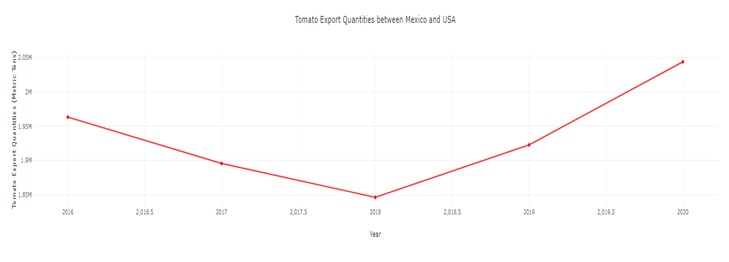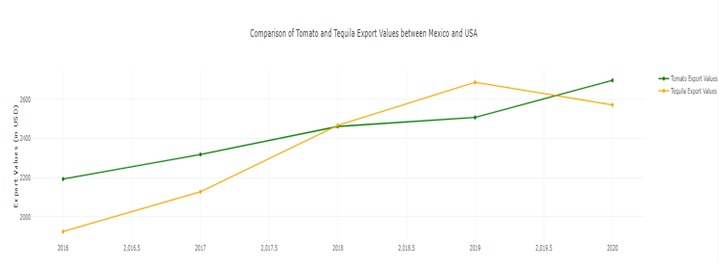Does political conflict hurt trade? Evidence from consumer boycotts. An article based on Kilian Heilmann (2015)
This research paper examines the connection between political conflict and international trade, with a specific focus on the impact of consumer boycotts. The study analyzes data from 2003 to 2012, including instances of politically motivated boycotts and trade data from various countries during the same period. The research finds that political conflict, as exemplified by consumer boycotts, does negatively affect trade, leading to a significant reduction in trade between countries involved in such disputes.
The Ricardian Model, which explains the benefits of international trade based on differences in opportunity costs among countries. It argues that countries should specialize in producing and exporting goods in which they have a comparative advantage, leading to increased efficiency and mutually beneficial trade. Using the example of the «Tomato War» between Mexico and the USA, it illustrates how comparative advantage analysis can be applied to real-world trade scenarios. Mexico’s comparative advantage in tomato and tequila production is demonstrated through trade data.
Here are some self-made graphics that exemplify the information mentioned before and that show how the patterns have changed, some of the information used was provided at the news by Diez, B. (2019):

Regarding the assumption that Ricardo’s Model shows, it can be established through the following points:
- Two countries and two goods: It mostly refers to the notion that only two countries are involved in trade and two goods are being produced as a result of it
- Fixed resources: When talking about fixed resources, we talk about labor, capital, and technology and that they are fixed and can’t be transferred between sectors

- Constant costs: It refers that the costs of producing goods remain constant as production level changes
- No transportation costs or trade barriers
By addressing these limitations and exploring additional dimensions of political conflict and potential moderating variables, the paper has the potential to enhance its analysis and offer a more comprehensive understanding of how political conflicts impact international trade.
We can see nowadays different examples on how the consumer boycotts have affected the economy of a country, for instance, since 2022 the economy of the Russian Federation after the sanctions due to the Ukrainian-Russian war and consumer boycotts of Russian products in the Western World and how it has affected the production and economy gains of Russian products, and how they had through its comparative advantage in certain products, such as natural gas, or oil, to focus on the domestic market and/or export to other countries such as China, or Venezuela in Latin America, or how in 2019 there was a political limitation and suspension of the Agreement of Economic Exchange of Tomatoes in the market between the US and Mexico, where the US wanted to protect the local market, and consequently shipments of Mexican tomatoes were blocked by US buyers at the border.
I would suggest as a potential extension to the paper to cover other facets of political conflict and their influence on trade.
Finally, another extension could be to explore the long-term effects of consumer boycotts on trade relationships and economic outcomes, since it only focuses on the immediate impact of boycotts on trade flows, but a deeper analysis of the longer-term consequences could provide valuable insights.
References:
- Diez, B. (2019) Aranceles al tomate mexicano: 4 efectos de la “guerra del tomate” entre México y Estados Unidos, by BBC. URL: https://www.bbc.com/mundo/noticias-48207086
- Kilian Heilmann. Does political conflict hurt trade? Evidence from consumer boycotts. Journal of International Economics. Volume 99. 2016. Pages 179-191. ISSN 0022-1996. https://doi.org/10.1016/j.jinteco.2015.11.008
Sobre el autor:
Rodrigo Bonet Galaz. Estudiante de la Licenciatura en Administración de Negocios Internacionales en la Universidad de las Américas Puebla (UDLAP). Realizó estudios en el extranjero en la Facultad de Administración de Empresas de la Universidad de Munich (LMU) en Alemania como parte de un intercambio académico en 2023. Temas de interés: negocios, globalización y finanzas en general. Es afán de la escritura académica y de la investigación.
Contacto: rodrigo.bonetgz@udlap.mx








